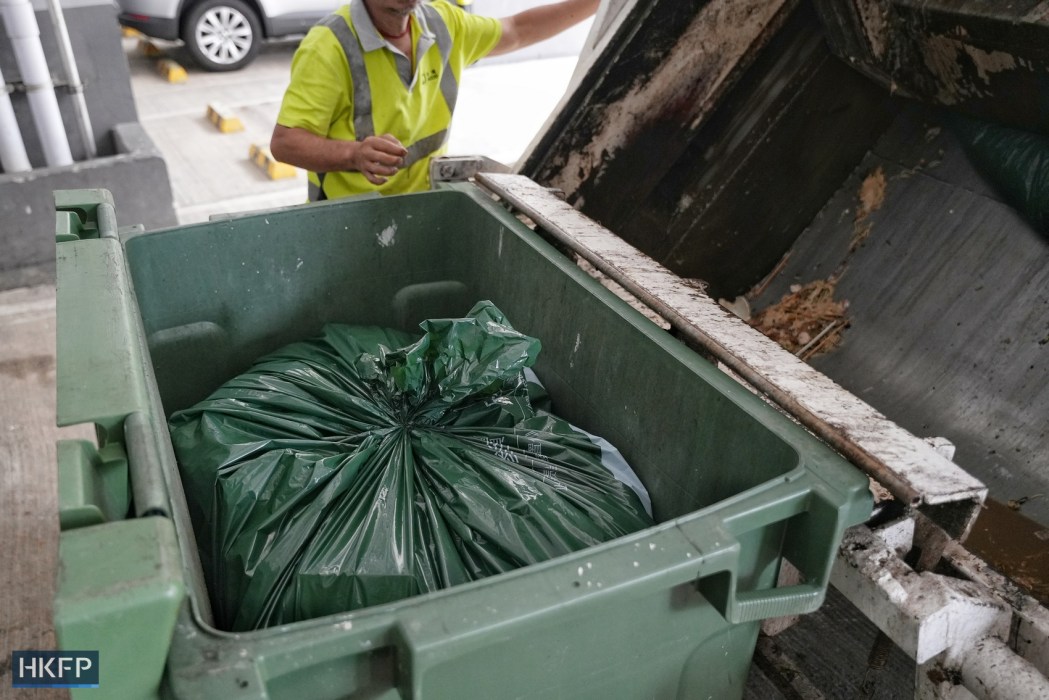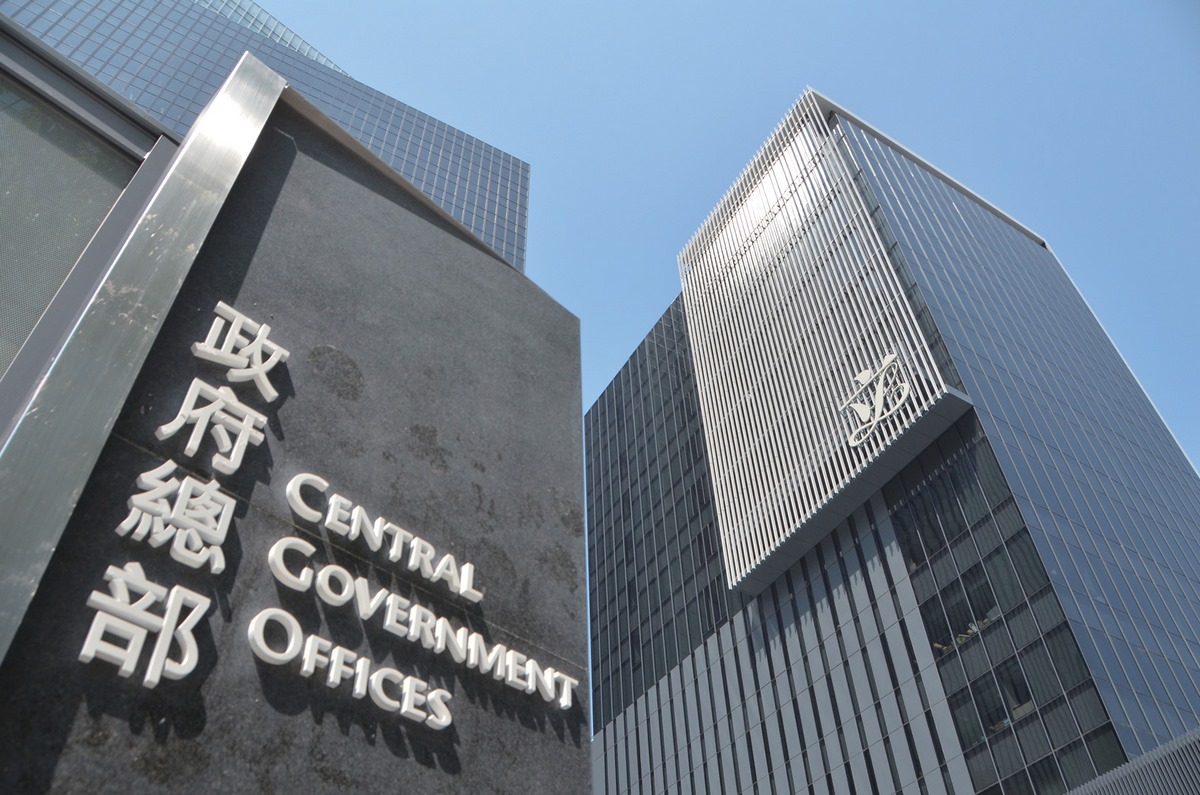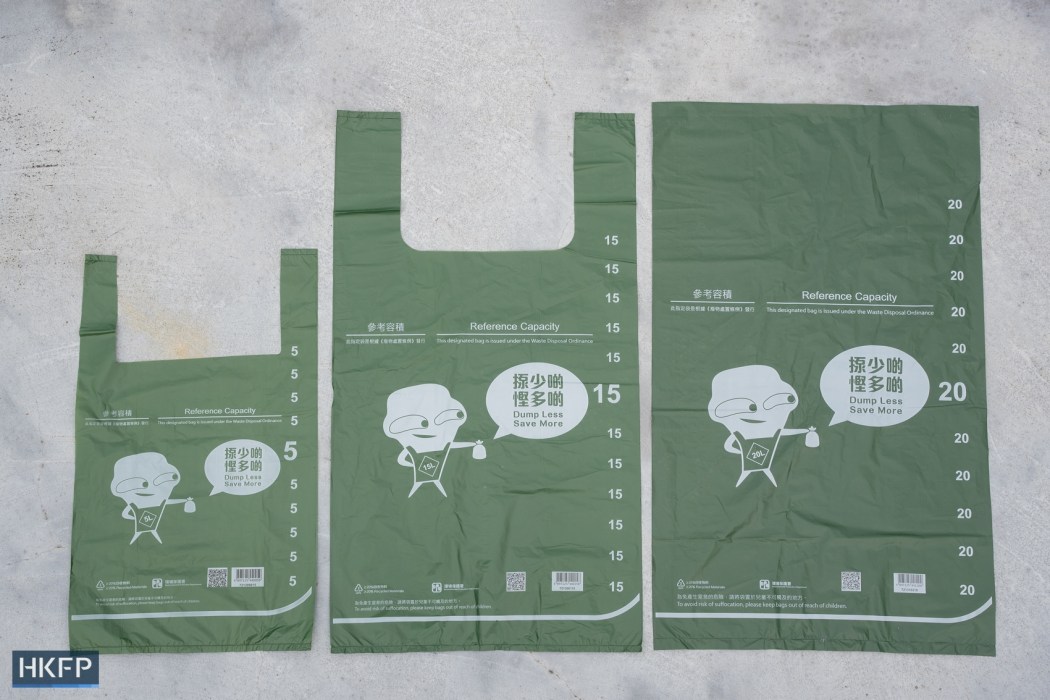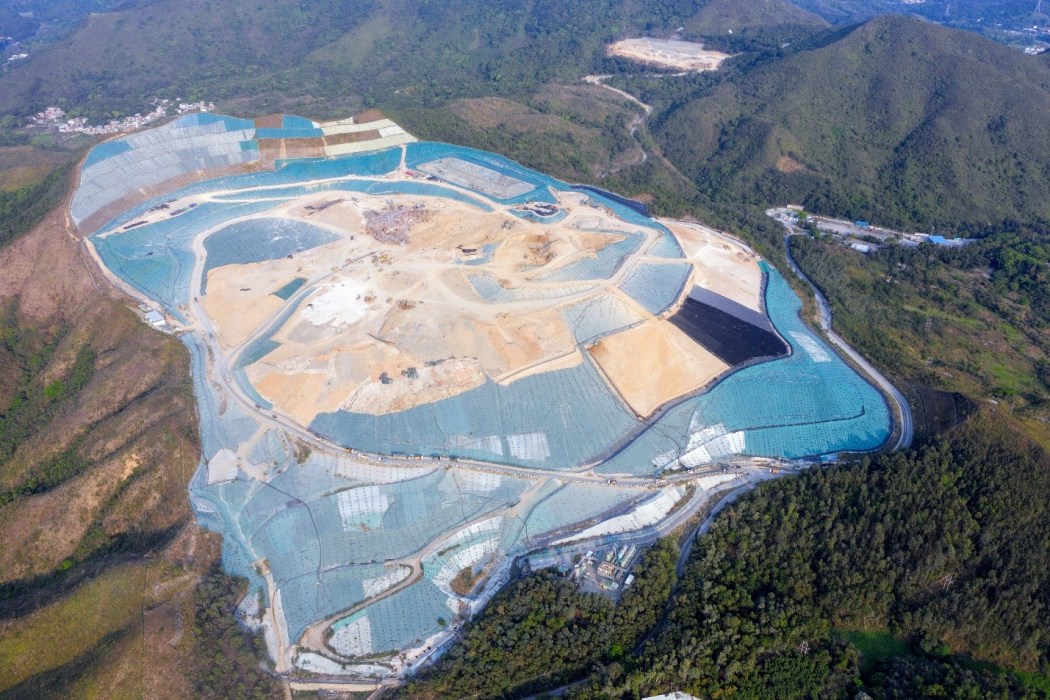Hong Kong’s Environment and Ecology Bureau is not participating in a trial of the city’s waste charging scheme, saying that the way rubbish was collected from its location in the Central Government Offices made it “not a suitable location.”

First suggested by the government in 2005 before becoming law in 2021, the waste charging scheme was in January postponed from its April 1 launch date until August. Environment chief Tse Chin-wan cited public misunderstanding of the policy as the reason. At the time, Tse added that the scheme would be trialled by government offices from April, saying “then we will have real operation cases for people to observe.”
However, when the pilot scheme began on April 1, only one of the 14 premises taking part in the trial was a government building: the West Kowloon Government Offices. Other places participating in the practice run are public and private housing estates, restaurants and residential care homes. Despite overseeing the policy implementation, the Environment and Ecology Bureau, located in Admiralty’s Central Government Offices, is not involved.
According to a spokesperson from the Environmental Protection Department (EPD), the government complex in West Kowloon – home to seven departments, including the Social Welfare Department, the Leisure and Cultural Services Department and the Transport Department – was an “ideal location for conducting the Demonstration Scheme.”

“The West Kowloon Government Offices (WKGO) was selected for the demonstration scheme because the WKGO adopts normal refuse collection vehicles… with rear compactors for refuse collection, and therefore the disposal of refuse will be charged by designated bags,” the spokesperson told HKFP by email last Wednesday, adding that this “represents a common practice for government offices.”
Not so at the Central Government Offices, though, where rubbish is collected by vehicles without rear compactors, and thus charged by weight. “Hence, it is not a suitable location for the demonstration scheme and therefore EEB was not involved,” the spokesperson said.
HKFP also enquired about the recycling and waste recovery rates at government offices, but has not yet received a response from the EPD.
Government-authorised rubbish bags
The pay-as-you-throw levy is designed to reduce the amount of waste sent to the city’s landfills by charging Hongkongers according to the amount of rubbish they generate. In 2022, the disposal rate of municipal solid waste in Hong Kong was 1.51 kilograms per person, per day, according to the EPD.

For most residents, that will mean buying government-authorised rubbish bags, which are available in nine sizes from three to 100 litres, with each litre costing HK$0.11. Under the scheme, a household throwing out one 10 litre bag per day would pay about HK$33 a month to dispose of domestic waste.
On the other hand, waste that is collected by private contractors that use refuse trucks without rear compactors will be charged by weight, meaning such residents would not need to use the designated bags. Detractors of the scheme have said this collection method does not live up to the “polluter pays” principle, as it does not incentivise individuals to reduce the amount they throw away.

The waste charging trial has generated debate since its launch three weeks ago, with some involved calling for greater support for recycling and Tse acknowledging a low take-up rate, saying that fewer than half of the households participating in the test run were using the designated bags to dispose of rubbish. Pro-Beijing heavyweight Lo Man Tuen also weighed in, urging the government to further delay the policy’s introduction, calling it “mission impossible.”
The EPD spokesperson said that an interdepartmental committee led by the deputy chief secretary for administration would report the findings from the trial scheme to the Legislative Council in May to June. “It is believed that the experience and outcome of the demonstration scheme will assist the government in identifying areas of work and arrangements that would require further enhancement and improvement upon the implementation of [waste] charging,” they added.
Separately, Hong Kong’s ban on single-use plastics began on Monday, coinciding with Earth Day. Under the ban, which has a six-month grace period during which businesses that do not comply will be issued warnings, expanded polystyrene tableware, as well as plastic straws, stirrers, forks, knifes, spoons and plates are prohibited.
Support HKFP | Policies & Ethics | Error/typo? | Contact Us | Newsletter | Transparency & Annual Report | Apps
Help safeguard press freedom & keep HKFP free for all readers by supporting our team









